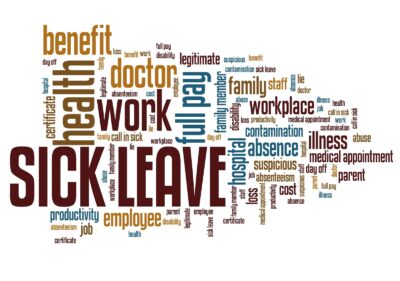Sullivan v Isle of Wight Council – Whistleblowing: Job applicants | Consensus HR – Herts, Beds

Summary:
Whistleblowing protection does not extend to external job applicants.
Note for employers:
This case clarifies the level of protection that job applicants can be given against whistleblowing and confirms that it will not be applied to external applicants, save under limited NHS job candidates not applicable in this case.
Nevertheless, even though the protection wasn’t extended in this case, this should serve as a reminder of the need for a robust recruitment process. This includes measures such as having more than one interviewer to avoid misinterpretation of what has been said. Another measure that can helps employers in cases such as these are compiling detailed notes during the interview process, including when it comes to making decisions. This will help employers get an overview of what happened during the interview and (hopefully) reassure them that genuine and on-discriminatory reasons explain the applicant’s rejection.
Our HR / Employment Law comments are at the bottom of this article.
LAW
The Employment Rights Act 1996 (ERA) sections 47B and 48 give protection to employees and workers following a public interest disclosure. It does not, however, extend that protection to job applicants.
Under the Human Rights Act 1998 section 3(1), primary legislation has to be read, so far as possible, in a way that is compatible with the European Convention on Human Rights (ECHR), including the status of worker under the ERA. That is unless by doing so it is necessary to amend the wording of the law; only parliament can do that.

Article 10 ECHR relates to the freedom of expression, and article 14 the prohibition of discrimination. Withholding protection from a whistle-blower legally entitled to protection would be a breach of these rights.
In Gilham v Ministry of Justice [2019], the Supreme Court had to decide how to interpret the ECHR definition of “other workers” found in article 14 in order to apply the whistleblowing protection under the ERA. To do so, it created a four stage test:
(i) whether the facts fell within an ECHR right;
(ii) whether the claimant was treated less favourably than others in an analogous situation;
(iii) whether the reason for such treatment was based on a listed ground or other status;
(iv) whether the treatment was proportionate

FACTS
The claimant had two job interviews with the respondent but was not accepted for either role. The claimant then filed a police report that alleged that during the interviews she had been verbally harassed by the respondent’s employees. She later complained directly to the respondent about the way the interviews had been conducted, prompting an internal investigation. She also made a complaint to her MP about the interviews and alleged that an employee of the respondent was involved in trust related financial irregularities. The respondent dismissed the complaints and disapplied her right to appeal.
The claimant subsequently brought a claim before the ET arguing that she had suffered a detriment when her right to appeal had been disapplied, and that this was because of the allegations regarding the financial irregularities she had made. She argued that whilst she was not a worker under the ERA, the protections for whistle-blowers should be extended to applicants by reason of ECHR articles 10 and 14
EMPLOYMENT TRIBUNAL (ET)
The ET had to first establish if it had jurisdiction to hear this case, which hung on whether or not the claimant held the appropriate status to be eligible to bring an ET claim.
In order to answer this, the ET applied the four stage test in Gilham v Ministry of Justice [2019]. To answer the second stage of that test, an “analogous” situation must be identified. Here, the claimant was arguing that internal applicants could be used for comparative purposes, and that by denying the right of appeal she had been treated less favourably that an internal applicant would have been. This was however rejected by the ET. In the case of an internal applicant, there is an existing relationship between the that does not exist in the same way as between the employer and an external applicant, and as such the situations cannot be analogous.

This reasoning led to the conclusion that she was not eligible to bring a whistleblowing claim. The ET held that Parliament had clearly intended to exclude job applicants from having whistleblowing protection. It also held that the ECHR was not engaged here, as ‘job applicant’ was not a recognised status for the purposes of article 14. In any event, the ET held that even if that were not the case, the actions of the respondent would have been proportionate in the circumstances.
This was appealed.

EMPLOYMENT APPEAL TRIBUNAL (EAT)
Dismissing the appeal, the EAT confirmed the ET’s decision that the claimant was not treated less favourably to others in an analogous situation as her status as external job application did not fall within the prescribed statuses in article 14. To hold otherwise, the EAT said, would only be possible after “legislative deliberation” on the wording of the existing law.
HRInform
Our HR Comment and Advice: – Sullivan v Isle of Wight Council – Whistleblowing: Job applicants | Consensus HR – Herts, Beds
Matthew Chilcott, FCIPD, ACEL, Owner of Consensus HR comments: – “This is a rather interesting and comprehensive case that took me a few reads to fully understand but highlights the importance of companies ensuring their Recruitment Strategy is correct and working to best practice and the law. As stated within this case, Sullivan was not an employee and as such not eligible to bring a Whistleblowing claim but regardless of this, if the employer had ensured that they worked to best practice when recruiting by ensuring more than one person was recruiting and detailed notes of the interview had been kept when making the decision, this could have been dealt with a lot easier and promptly.”
To view more about our range of HR & Employment Law Services
Are you concerned about how you recruit and your recruitment strategy?
Your Outsourced Human Resources (HR) Department.
For further information on any of the HR subjects we provide, please click the heading below:


